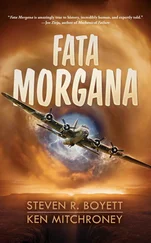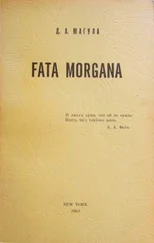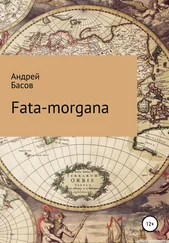* * *
They forced us to walk all night. Like all the children taken with me, I had to carry on my head a heavy bag full of grain or flour. The throbbing pain in my arms, injured by the overtight cords, made the exercise even more difficult; I kept slipping in the mud, tripping over roots, creepers, or brambles, often I dropped the bag and for my trouble received a volley of blows. Thorny branches scratched my arms and face, mosquitoes were devouring me and I couldn’t even scratch the bites; I moved forward step by step, panting, roughly guided by the rope tying me to the young girl in front of me. Whenever one of the children, exhausted, wound up collapsing, they would shower him with kicks; if he didn’t get up quickly enough, they would kill him, with a blow from a stick, the butt of a rifle, or a knife: ever since the appearance in the rain of the first soldier, I hadn’t heard a single gunshot. Around us rose the immense trees of the forest, black and menacing, caught in a network of vegetation as in giant spiderwebs; the moonlight barely filtered through but that didn’t seem to bother the soldiers leading the march. The darkness, on both sides of the column, was animated by the mad dance of fireflies, minuscule points of green light that appeared and disappeared, brief as a friendly wink; on all sides, the forest rustled, bird cries or monkeys frightened by the passing of the troop, sounds of crunching leaves, of broken branches, of drops of water shaken from branches, an order barked out in an unknown language, the yap of pain and fear of a child being hit, the hoarse noise of desperate breathing. Violent odors seized me in the throat, odors of earth, mud, swamp, decomposed leaves, the sharp smell of sweat from the soldiers who sometimes passed by me, the sweeter smell of shit when one of the children, unable to hold back anymore, shat while walking, the smell of fear, the most recognizable of all. When we arrived at the camp it was still night. Armed soldiers and a crowd of children welcomed us in a vast subdued murmur; bags, jerrycans, pots were taken off our heads by agile, almost invisible hands; separated into two groups, boys and girls, we were led, through a clearing still soaked with rain, before the leader of this strange army. Installed on a little seat made of woven wood, he sat in state beneath a straw awning, surrounded by a dozen soldiers armed with Russian rifles and machetes, young women and girls at his feet, sitting in silence. Rough hands forced us to our knees on the wet grass, a dozen meters from the group; the commander rose, the moon lit up his features and I could clearly make them out, he looked young, barely older than his men, I could see them better too and not one of them seemed to have passed adolescence. A soldier approached his chief, who, in a loud but slightly shrill voice, uttered several phrases, immediately translated by the soldier into a language that I understood no more than the original. Then the entire assembly knelt around us, the commander alone remaining standing, his little oiled braids and his gris-gris gleaming in the nighttime brightness, and intoned a solemn hymn, taken up in unison by all the others. When this was over, several soldiers passed among us, each holding a little gourd; at each new captive they dipped their fingers in the container and with a thick white substance drew a cross on his forehead, chest, back, and both hands. When my turn came, I submitted passively, closing my eyes; from now on, I belonged to them. Then the commander shared out the girls among his soldiers, keeping two for himself, and I was pushed with the other boys to a corner of the clearing, where we were again tied to each other by the waist and ordered to lie down and sleep. Above my head, the foliage of the trees stood out from the pale nighttime sky, a few drops were still falling from the leaves, the moon shone a little higher, and I could see no stars. A brief little cry sounded behind me, followed by a rustling of leaves and a grunt; I turned around as well as I could: in the midst of an expanse of tall green grass, near the first trees, a soldier had just pushed one of the girls onto the ground. She had fallen on her stomach, on the faintly golden ground, and he was lowering his pants and kneeling behind her to lift up her dress. She cried out again and he struck her, a brutal punch to the back of her neck; she fell abruptly silent, and he lay down on top of her; his black buttocks and his powerful thighs, almost blue in the cold light of the moon, were facing me, I watched them move in and out for a few moments, the girl’s body had disappeared in the tall grass but I could sense her powerless trembling, finally I turned onto my back and closed my eyes. The respite didn’t last long, a kick in the ribs woke me up too soon, all around me, in the dawn light, the camp was bustling about, young girls were pounding food in wooden mortars, boys were bringing in dead wood, fires were being made and water boiled. A few soldiers untied us and indicated that we could go into the woods to attend to our needs. I walked between the trees, distancing myself a little from the other boys and looking for a bush, and finally lowered my pants, stiff with mud and filth, and squatted: shit began to flow right away, liquid, stinking, almost green. When it was over I wiped myself as well as I could with some leaves and stood up. A little further on some soldiers were shouting, boys were running through the trees toward the camp. It was then that I noticed with surprise a hut, planted there on the edge of some land cleared between the trees, with earthen walls and a little wooden door. I approached and pulled the metal latch to push the door open, it gave way easily and I lowered my head and shoulders to enter. Once in the hallway I straightened up and despite the pain still shooting through my muscles immediately resumed running. I no longer felt either fatigue or discomfort, my breathing came easily and my long strides fell with regularity, even though I had trouble keeping my balance, I reeled a little, disoriented by the lack of light and landmarks, I bumped violently against a wall but didn’t interrupt my running, gropingly searching for the way to navigate between the walls, avoiding the darker sections that could have turned out to be dungeons, or else side galleries leading God knows where. Finally I stumbled into the locker room and changed rapidly, pulling my swimming cap over hair still stiff with mud and going through the swinging doors to find myself in a large and very blue space echoing with shouts and water sounds. All around, long mirrors framing the pool sent back reflections of my body, fragmented and impossible to connect to each other, I tottered again, then pulled myself together, straightened up, and, body taut, buttocks tight, plunged straight as a spear into the clear, cool water.
I did lap after lap without counting them, reveling in the strength of my muscles and the fluid, viscous feel of the water, barely pausing at the ends of the pool before starting back again with a vigor each time renewed. Finally, plunged beneath the surface, eyes wide open, I finished. My head broke the surface, my hands found the edge, took hold, and, in one push of the shoulders, hauled my streaming body out of the water. Disoriented by the blue light and the sounds, I tore off my cap and goggles and stayed there for a moment, the water running from my body to form a puddle at my feet. The lapping of the water, shouts, laughter resounded around me, the large mirrors framing the pool reflected from every side fragments of my body, a shoulder here, a thigh there, the flank, the pectoral, the back of my neck, the curve of my back. Near me a slender girl dove into the water in a brief, powerful motion. I came to myself and headed for the swinging doors which I banged open with the palms of my hands. Dried off, wearing a silky grey tracksuit, pleasant to the skin, I found myself back in the hallway and began running in small strides, my white sneakers hitting the ground with a light step, my breathing whistling between my lips. A diffuse light reigned here, almost opaque, I could see no source of light and could just make out the walls enough to steer myself; in places, darker zones seemed to indicate intersections or perhaps some sort of gaps, I ignored them and continued straight on as well as I could as the hall seemed to curve and I constantly had to correct my course to avoid bumping into the walls. Sometimes, to guide myself, I held out my fingers, and this is how they collided with a metallic object, a handle which I grasped and pushed without hesitating, following the movement of the door that opened. I found myself in an unknown garden that nonetheless seemed vaguely familiar, an almost wild garden, abandoned, invaded by weeds. I made my way with difficulty between the long thorny branches of bougainvillea, half stifled by the ivy covering everything; in front of me, the tall façade of the house, raised like a tower, disappeared beneath the wisteria which proliferated up to the roof and twined together, or else fell back beneath its own weight, masking the sun and plunging the garden into a half-darkness that failed to mitigate the humid, heavy heat. I wiped off the sweat bathing my face with a sleeve and entered the house. Everything was quiet. Down the hallway, I pushed a half-open door: it was a child’s room, I examined for a moment the toys, the movie posters, the tin cavalrymen scattered over the large carpet before turning back and climbing up the spiral staircase to the next floor. A framed reproduction of Lady with an Ermine , barely visible beneath the filth, decorated the landing; upstairs everything was empty. I passed my fingers over surfaces black with dust, thick, intact layers, as if the house had been abandoned long ago; nonetheless, I could discern everywhere traces of a recent presence, dirty dishes were piled in the sink, the fridge was full even though the food was beginning to stink, the irises in a narrow vase were only just wilting; in the dining room, the table was still set, the remnants of a meal filled the dishes and plates; clothes lay on the furniture, a book open on the sofa, an uncorked bottle on a cabinet. I climbed up to the next floor. The bedroom was dark, bathed in a weak greenish light, the daylight almost completely filtered by the wisteria covering the window. A suffocating heat reigned here and I tried to open the window, but the wisteria prevented me and I could only open it a crack. I wanted to turn on the lights but the bulbs seemed to have blown; I found a new one in a cupboard in the bathroom and changed the one in the bedside lamp, which still wouldn’t light; I went back downstairs, found the fuse box in the kitchen, the fuses had blown and I reset the main circuit breaker, turning on several ceiling lamps in the process. Upstairs, the bedside lamp now threw a gloomy yellow light on the scene. I looked around me. At the foot of the bed lay piled a large embroidered bedspread, long green grass on a golden background, negligently thrown there; women’s clothes were scattered pretty much everywhere, dirty panties, skirts, mismatched shoes; on the dresser lay several photographs that I picked up and quickly examined, one after the other. They all showed me in the company of a beautiful little blond boy with lively, sparkling eyes, shown at different ages and in different situations, at the beach, at the circus, on a boat, but always near me, in my arms or sitting on my lap. I put them down and began searching through the drawers. In the nightstand, I found what I was looking for, a pair of scissors, made of very heavy metal; I picked up the photos again and began cutting them, separating my image from the little boy’s, which I threw in the drawer that I closed when I was done. Then I shuffled the remaining pieces of the photos like a pack of cards and fanned them out. Abstracted thus from its context, my frozen face came to life, it reflected like a mirror the presence of the eliminated child, laying bare everything that connected it to him and that could never be undone. This aroused in me a glacial feeling, I couldn’t tear my eyes away from these images and at the same time I couldn’t look at them either; finally, overwhelmed with anguish, I threw them in a rage on the dresser where they fell, scattered.
Читать дальше











